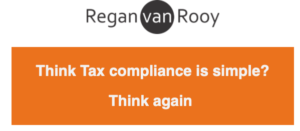Changes to criteria considered by SARS when suspending payment of tax
- DLA Cliffe Dekker Hofmeyr
- South Africa
- January 30 2015
- When the Tax Administration Act, No 28 of 2011 (TAA) was promulgated on 1 October 2012 it introduced rather aggressive provisions empowering the South African Revenue Service (SARS) to collect tax more effectively, including the retention of the pay-now-argue-later principle. However, s164 of the TAA allows a taxpayer to request a suspension of the obligation to pay an amount of tax or a portion thereof under an assessment where the taxpayer disputes or intends to dispute the liability to pay that tax under the dispute resolution provisions contained in Chapter 9 of the TAA.
Previously, s164(3) of the TAA provided that a senior SARS official may suspend payment of the disputed tax or a portion thereof having regard to:
- the compliance history of the taxpayer;
- the amount of tax involved;
- the risk of dissipation of assets by the taxpayer concerned during the period of suspension;
- whether the taxpayer is able to provide adequate security for the payment of the amount involved;
- whether payment of the amount involved would result in irreparable financial hardship to the taxpayer;
- whether sequestration or liquidation proceedings are imminent;
- whether fraud is involved in the origin of the dispute; or
- whether the taxpayer has failed to furnish information requested under the TAA for purposes of a decision under s164.
Generally, SARS would not consider a request under s164 without the taxpayer dealing with and providing adequate motivation in respect of all the said criteria.
The Tax Administration Laws Amendment Act, No 44 of 2014 (TALA) has now introduced amendments to the factors listed in s164(3), with effect from 20 January 2015. The amended s164(3) states that a senior SARS official may suspend payment of the disputed tax or a portion thereof having regard to relevant factors, including:
- whether the recovery of the disputed tax will be in jeopardy or there will be a risk of dissipation of assets;
- the compliance history of the taxpayer with SARS;
- whether fraud is prima facie involved in the origin of the dispute;
- whether payment will result in irreparable hardship to the taxpayer not justified by the prejudice to SARS or the fiscus if the disputed tax is not paid or recovered; or
- whether the taxpayer has tendered adequate security for the payment of the disputed tax and accepting it is in the interest of SARS or the fiscus.
It is clear from the changes introduced by the TALA that some of the criteria previously contained in s164(3) have now been removed, and it appears that it would now be more difficult to obtain a suspension of payment of tax.
Previously, a taxpayer was required to state whether fraud was involved in the origin of the dispute. This criterion has now been amended to afford SARS an opportunity to exercise its discretion to decline a request if, at first sight, it considers fraud to have been involved in the origin of the dispute.
Taxpayers could previously aver that the payment of the tax, or portion thereof, would result in irreparable hardship to the taxpayer. This criterion has now been amended to allow for the prejudice to SARS or the fiscus if the tax is not paid or recovered to be weighed up against the hardship which the taxpayer will suffer if the tax were to be paid.
It is also no longer sufficient for the taxpayer to tender adequate security for the payment of the tax, as SARS will now also be required to consider whether accepting this security is in the interest of SARS or the fiscus.
An interesting amendment to s164(3) is that the list of criteria is no longer an exhaustive list. Section 164(3) now provides that the new criteria are only relevant factors to be considered, and the word ‘including’ opens the door for further relevant factors to be considered when exercising SARS’ discretion, which means that both the taxpayer and SARS will be able to consider additional relevant factors not listed in this subsection. What further factors SARS will consider relevant remains to be seen and will most likely depend on the specific circumstances and facts of each matter. It should be noted that it was previously proposed to amend the criteria to specifically allow SARS an opportunity to also consider the merits of the matter when exercising its discretion in s164 of the TAA, however, this amendment did not find its way into the final TALA.
It is clear from these amendments that, going forward, it will be harder for a taxpayer to persuade SARS to suspend the obligation to pay a disputed amount of tax.






